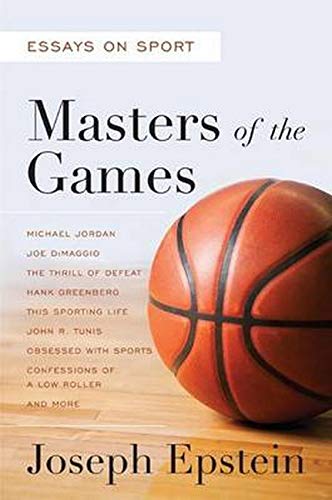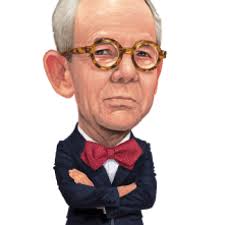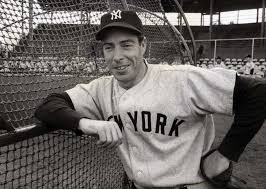What sports team do you love to hate? Against which team will you root, no matter what?

If you’re a Red Sox fan, the Yankees. If you’re a BC football fan, Notre Dame. If you’re a National Football League fan anywhere but where I live, the Patriots. Of course. You hate to see that rival win any game, and you most hate to lose to them.
Joseph Epstein doesn’t feel quite that way. He has a different reason for rooting against Duke in basketball. Or at least he once did. And I must say that, as an English major, I’d be inclined to agree with him.
“I tended to root against Duke not only because they were such consistent winners, but because it had (and, so far as I know, still has) one of the most wretched English departments in the country, filled with Marxists, deconstructionists, and other assorted goofies…I also thought of Duke as a school for spoiled children, which is what, on the West Coast, they call USC (University of Spoiled Children).”
But – credit where it’s due – he changed his mind, citing the many players that Duke sent to the National Basketball Association “who have shown impressive discipline on the court and don’t do egregious things off it. Coach K. [Krzyzewski] must be teaching something worthwhile besides the imperative of beating North Carolina.”
These passages come from “Masters of the Games: Essays and Stories on Sport.” It is his 25th book. I’d seen his op-eds in the Wall Street Journal, but I had no idea of how prolific an essayist he is, or of how much of a sporting enthusiast.
Reading Epstein on the people of the sporting world is a little like reading Truman Capote about the beautiful people of show business. They both have an inimitable way with words, they know whereof they speak, and they both have no compunction about tweaking noses and making enemies.

Epstein is a college professor, not a sports writer. He has taught English and writing at Northwestern University since 1972. He must be a rather rare bird in that universe, because he disdains the political correctness that has overgrown the groves of academe. He was editor of the “The American Scholar” for 24 years before a Phi Beta Kappa senate removed him in 1998 for, he maintains, “being insufficiently correct politically.”
He coined the term “virtucrat,” which he defined as “any man or woman who is certain that his or her political views are not merely correct but deeply, morally righteous in the bargain.” Later, he wrote that a virtucrat was a person “whose politics lend them the fine sense of elation that only false virtue makes possible.”
Ouch. No PC there. I suspect that being a professor and essayist on many subjects, rather than a full-time sports writer, gave Joseph Epstein a little more freedom to speak his mind about sports people.
The essay in which Epstein needles the Duke faculty is called “March Sanity.” He tells the readers where his sympathies lie during the NCAA basketball tournament and in college football; he has no use for certain coaches:
“…I was against Rick Pitino, a coach I’ve watched regularly trade in loyalty for dollars – nothing, let it be noted, singular about him in this – but also yell at his players in public in an unattractive way. Like a number of other coaches, Pitino is averse to sitting down during a game, and attempts to direct play standing up at the sideline, a distraction to everyone.”
“The salaries for college coaches at the highest levels are up there in the millions, and these salaries are not given for character building or instruction in elegant manners. Watching them on the sidelines, red-faced, screaming at referees and umpires, calling out their own players, the phrase that comes to mind to describe most college coaches is ‘ugly customers.’ There have always been such coaches – Jerry Tarkanian at the University of Nevada, Las Vegas, Bobby Knight at Indiana, Woody Hayes at Ohio State – but nowadays they seem to preponderate.”
“One of the things I shall be cheering for during the NCAA basketball tournament is that certain coaches don’t make it to the Final Four. That John Calipari and his Kentucky team aren’t even in the tournament this year is cause, in my view, for hiring a small marimba band in celebration. Because of their coaches, I’d like to see Kansas ousted early – so too, Louisville and Ohio State, and a few years ago I would have added Duke.”
You don’t read observations like that, or like some of the other unvarnished truths as Epstein sees them, from people whose regular beat is sports. He’s clear eyed in acknowledging that times have changed in sports and society, and that the good old days – which weren’t all that good, but we believed they were – aren’t coming back. But that doesn’t mean we can’t pine for them nostalgically. I don’t know if you do that, but I do.
Epstein grew up in Chicago, a city that reveres the memory of George Halas and his Chicago Bears. While noting Halas’s skill as a coach and innovator, he goes on to state,
“Much piety surrounds the name George Halas in Chicago. Halas himself grew pious in his old age, certain that a seat near the 50-yard line awaited him in heaven. He was in fact a bleak and unpleasant man.”
Consider issues of class and manners, and how they have evolved. Epstein writes the following of tennis, a sport in which he excelled in high school, winning the Chicago City High School Doubles championship.
“I would have to say that I had stylish strokes, was not all that effective, but very well dressed. From the beginning, I was swept away by what I took to be the intrinsic elegance of the game. Although it would be years before I read her, so was Edith Wharton, who wrote that ‘It seems to me such a beautiful game – without violence, noise, brutality – quick, graceful rhythmic, with a setting of turf and sky.’ Just so.
“Good that Edith Wharton is not alive today to hear Maria Sharapova grunting away, making each long rally sound like something happening behind doors at a Masters and Johnson laboratory.”
This simile is a perfect example of what I mean by “a way with words.” So too is Epstein’s description of Andre Agassi’s wardrobe, below.
As for the connection between how tennis players dress and how it affects their manners and their game, he remarks
“At least Andre Agassi’s denim shorts never caught on, worn in the days when, also weighed down with heavy duty stubble, long hair, earrings, hat, and over-large shirt, Mr. Agassi looked like nothing so much as a gypsy on the way out of town with two stolen chickens in his bag.”
He prefers instead, tennis where the “old WASP standard has combined with a deeply democratic spirit…the reign of the remarkable generation of Australian players, among them Rod Laver, Lew Hoad, Ken Rosewall, Neal Fraser, Roy Emerson, and John Newcombe. These were all young men from less than wealthy homes who, while playing brilliantly, always acted gentlemanly. They were intensely competitive without being, a la John McEnroe and Jimmy Connors, pigs of competition. And they all wore white.”
There’s a great deal more – musings and commentary, fiction, personal reminiscences, and profiles of athletes – to inform, delight, and even irritate you in this book. I devoured it in a couple of days. The title would lead you to believe that it was largely a book of feature articles on individual athletes. There are only a few, but they’re worth the price of the book.

The profile of Bob Love, a basketball player about whom I knew nothing, is wonderful. The piece on Hank Greenberg, who along with Sandy Koufax was a genuinely great ballplayer, says that “Greenberg may be quite as famous for being Jewish as for what he did in the batter’s box.” This, even though Hank had 189 RBIs in 1937, hit 58 home runs in 1938, and twice won the American League MVP Award while playing for the Detroit Tigers.
Greenberg only played nine years in the majors and missed four seasons while serving in the Army in World War II. He was a peerless hitter but struggled in the field, both in the outfield and at first base. His biggest struggle, though, must have been with antisemitism.
Detroit, where he had to play, was the city of the viciously Jew-hating Henry Ford and Father Charles Coughlin. The slurs came from everywhere; they got so bad that one day, during a game against the White Sox, he marched into the Sox’ clubhouse and declared “I want this guy who called me a yellow Jew bastard to get to his feet and say it to my face.”
Had Hank Greenberg not gone off to war in the prime of his life, his career statistics of 331 home runs and lifetime average of .313 would undoubtedly have been better. He’s in the Hall of Fame, but he wouldn’t make the all-time starting lineup ahead of Lou Gehrig at first base, or in the outfield. He definitely would be, as Epstein dubs him, the designated mensch.
The chapter on Joe DiMaggio, titled “Where’d He Go?” is more a critique of a book about Joe by Richard Ben Cramer than it is about Joe himself. It’s well known that Joe was not a particularly nice man, aloof and rather lonely and possessing “an Olympian contempt for anyone who contributed to his team’s defeat or failed to meet his personal standard. He was famously rivalrous with Ted Williams, who was probably better as a hitter but at no other aspect of the game. “He throws like a broad, and runs like a ruptured duck,” was DiMaggio’s assessment of Teddy Ballgame.

Cramer’s book, “Joe DiMaggio: The Hero’s Life,” is a despicable takedown, according to Epstein. “In Richard Ben Cramer’s pages, Joe DiMaggio does almost nothing decent. He is a bad father, a worse husband, a poor friend, a cheapskate, selfish, humorless, a prude operating on a sexual double standard, a solipsist of the highest order.”
Epstein goes on to show that there were mitigating factors all along in Joe DiMaggio’s personal life. “He was not the deep creep presented by Cramer, nor will it do to make him out to be just a dumb jock. He was more complicated than that.”
Maybe Richard Ben Cramer is a sportswriter version of the virtucrat, which Epstin defined in another context. He concludes this chapter in a blistering assessment of that author himself:
“Richard Ben Cramer, cool and with-it though he strains to be, plays the virtue card throughout….In scoring off Joe DiMaggio in all these various ways, in smoking him inside, Cramer’s own position is implicitly one of moral superiority. But if the biographer is the morally superior man, why does he seem so much less interesting than his subject and finally so unconvincing? The short answer is that his moral superiority exists only on paper.”